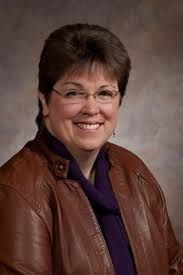Image

August 19, 2014
Lack of Rural Broadband Frustrates Fairgoers
by
Senator Kathleen Vinehout
“It’s pedal to the metal on broadband policy—for both consumers and competitors,” said Federal Communications Commission (FCC) Chairman Tom Wheeler at a recent address to the Brookings Institute as reported on a Brookings website.
Internet in rural Wisconsin is closer to Pony Express than “pedal to the metal.”
That’s the general consensus of folks at the Pierce County Fair.
“AT&T is the largest carrier in the world and they won’t come to my house,” Tammy Tollefson told me. AT&T provided phone service to her rural Pierce County residence but not broadband. “We are literally the last mile,” she said.
The family has tried everything: dial up, hotspots, “ISDN” a system that used two phone lines, “Nextera” wireless, satellite. Nothing provided the service Tammy needed for her job – working for a nonprofit based out of her home. “We use Sococo, a virtual office where you can go into someone’s office and have a private conversation or set up a meeting in a virtual conference room.”
Tammy is not alone. Many people in rural Wisconsin work from their homes. They deal with the frustrations of broadband – or lack thereof – every day. My next-door neighbor left rural Alma because he didn’t have Internet speeds to run his furniture design business. He ended up moving to South Africa.
When Tammy heard I was interested in finding a solution, she put together a map of Pierce County and asked fairgoers to mark their location on the map with sticky stars of different colors depending on their Internet satisfaction.
What we learned was striking. Folks in River Falls had excellent service. But right outside River Falls – in a rural stretch of land heading toward Hudson – folks had AT&T cables running near them but could not get broadband.
“I’ve got AT &T cables running through my front yard,” a father of young children told me, “but they won’t serve me. My Internet service is really bad.”
Whole areas in the county appeared to be completely unserved. For example, the entire area around Beldenville was filled with red and orange stars – signifying poor or no Internet service.
I spoke with two county board members who were working the booth next to me. One of them said, “It’s like electricity territories. The FCC set up where telephone companies originally put their lines and that company totally controls that territory.” These territories don’t follow any natural or political subdivision borders – different companies could serve people in the same township. I learned that seven different companies serve Pierce County. Tammy described this piecemeal system as creating “little pockets of nowhere.”
Why do phone companies that control a certain territory not provide Internet service to their customers? The county board members told me, “AT&T has no interest in expanding.”
Problems are so great that a year ago University of Wisconsin - River Falls teamed with local economic development folks to do a survey of Internet service. The survey results showed half of the respondents were unsatisfied or very unsatisfied with their current Internet provider. Half of businesses surveyed did not have broadband service. The vast majority of these businesses were interested in obtaining fiber optic access. The UWRF team estimated about 13% of households and 16% of businesses responded to the survey.
I learned the town of Troy used stimulus money to lay fiber optic cable to every house in the Township. A recent FCC ruling may allow municipalities to cross the “walls” demarking territory and build out into neighboring territory.
Broadband service isn’t the only modern convenience lacking in Wisconsin. Our fair booth Internet map was so popular, we ran out of material. Just calling Tammy to ask for more supplies was one “Can you hear me now?” after another as I moved around the fairgrounds in Ellsworth to get a cell phone signal.
The folks watching me laughed as I planted myself to deliver a few sentences. “Maybe you need a cell phone map too,” one of them said.
“God bless you for trying to solve this problem,” Tammy told me. “Of all the modern conveniences – we are so far behind other countries all over Europe, South America, even Korea of all places.”
